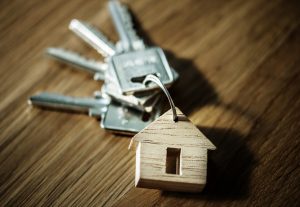
Most flats will be sold as leasehold properties. So your first question might be: what is a leasehold property? Unlike a freehold, where you will own the entire property including the land it sits on outright, a leasehold gives you the right to occupy the property for a set period.
The building that contains your flat and the land it sits on will be owned by the freeholder. This arrangement is normal with flats. The freeholder is then responsible for maintaining common areas of the building used by all occupiers, and the roof and external structure.
The other aspect to look out for is the time remaining on the lease. Shorter leases are less valuable. Normally, once you have lived in the property for two years you will have the legal right for a lease extension by 90 years. However, if the lease has less than 80 years left to run the cost of extending the lease is likely to be high.
Never accept a verbal commitment from the freeholder that they will be happy to extend the lease as soon as you complete the purchase. You need to have this in writing with an agreed cost.
What are Management Fees?
The freeholder or their managing agent will recover the cost of maintaining and insuring the building through a service charge or maintenance fee. This is the first area where taking advice from a solicitor is worthwhile. Are the charges reasonable, what is the process for reviewing the charges, and is it absolutely clear in the terms of the lease what the landlord is responsible for?
Similarly, there is also likely to be a ground rent paid annually to the freeholder. Unfortunately, there have been cases where this payment increases significantly over time, so it’s important to understand what the arrangements are.
Restrictions and Conditions Vary
Leaseholds also tend to have more restrictions than a freehold. Depending on the lease terms you may need permission to make alterations to your flat. You may also be prevented from owning pets or from running a business from the premises. There is no such thing as a ‘standard’ lease agreement. Each one needs to be carefully read to make sure your obligations and restrictions are clearly understood.
In some cases, it may be possible to buy a share of the freehold along with the other flat holders. This can have some advantages, as you have more direct control and ownership, but you should remember that the lease terms will still apply.
Take Advice BEFORE you Sign
Once you find a flat that you want to purchase it can be tempting to gloss over the leasehold agreement, assuming that terms and conditions are more or less standard. This is a high risk. Finding the cheapest option for your conveyancing can also be a costly mistake if they don’t pay enough attention to the details.
Taking good legal advice before you sign is especially important with leasehold properties because of the added complexities and risks. It is important to ensure that you understand exactly what you are getting into before you commit. It may be that some aspects of the lease agreement can be negotiated. At the very least you will have an itemised list of your obligations and likely costs so you can budget properly.
If you are planning to buy a flat on a leasehold basis get in touch with the PowellsLaw Property Team on 01934 623 501. We will be happy to advise you and make sure you avoid the twin traps of making assumptions and missing details in the small print of your agreement.


